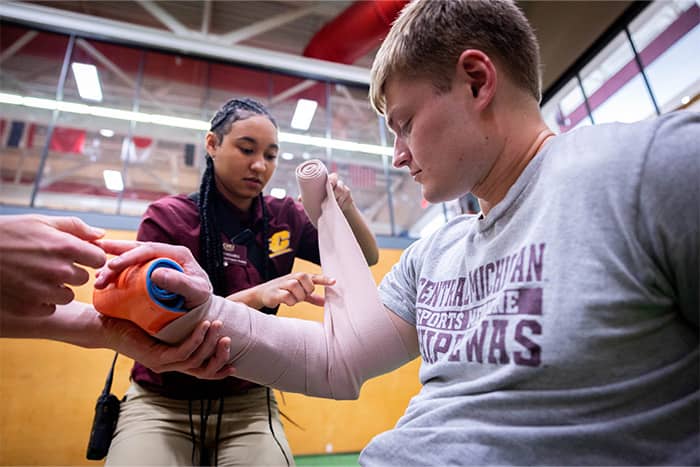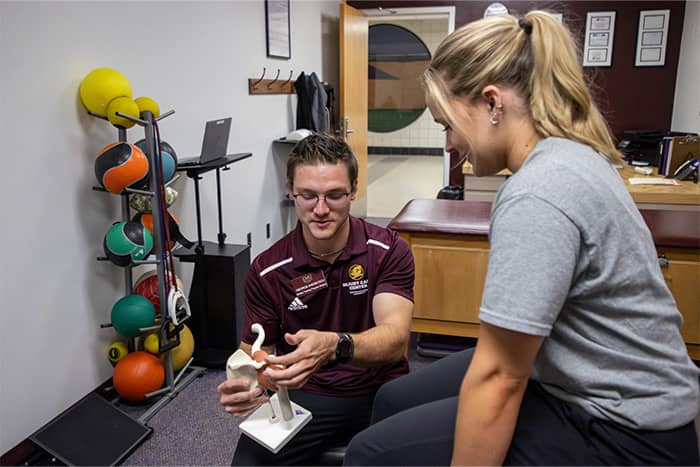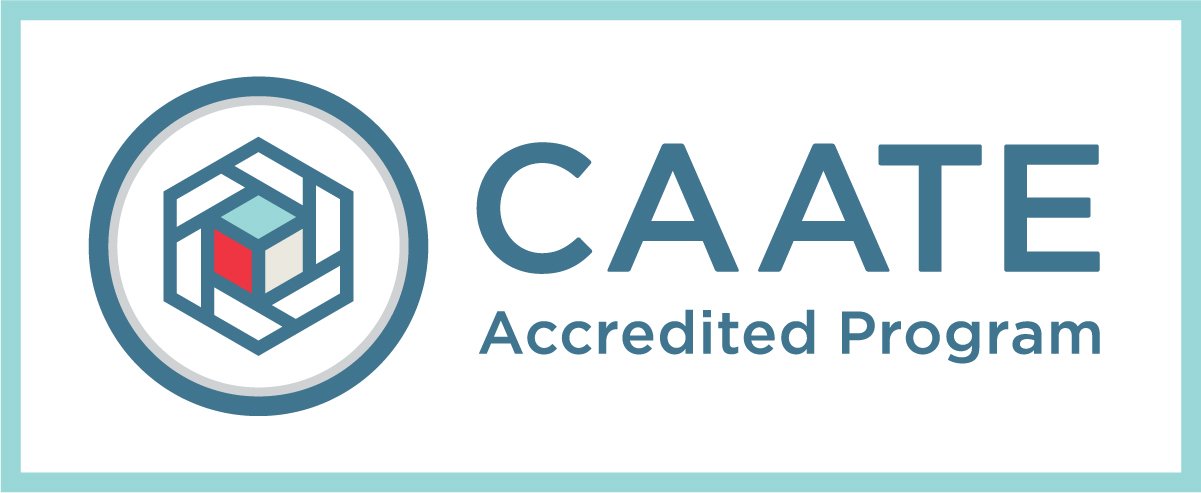Athletic Training Program Details
The Master of Science in Athletic Training (MSAT) is a concentrated area of study that includes classroom and laboratory instruction and clinical experiences designed to prepare you to be an entry-level certified athletic trainer. There are two options you can choose from to become an athletic trainer: the combined 3+2 BSAT/MSAT program or the 2-year MSAT program. Regardless of which path you choose, when you complete the MSAT, you will be eligible to apply for the Board of Certification (BOC), Inc. national examination to become a BOC certified athletic trainer (ATC).



Athletic training program options
3+2 BSAT/MSAT
The 3+2 BSAT/MSAT is structured into three years of undergraduate coursework and two years of graduate coursework in athletic training. You must complete admission requirements before selection to the MSAT program can be completed. Thirty-two students will be selected and admitted annually to the MSAT program. Upon completion of the MSAT, you will be awarded both the BSAT and MSAT degrees. In addition to the graduate coursework, you will have a variety of clinical experiences.
You are strongly encouraged to meet with the athletic training faculty advisor to understand the requirements for the undergraduate major and admissions criteria for the MSAT program.
VIEW THE 3+2 BSAT/MSAT MAJOR MAP
MSAT
The 2-year stand alone MSAT consists of two years of graduate coursework and a variety of clinical experiences. To apply to the MSAT program, you must have an earned bachelor's degree prior to starting the MSAT graduate coursework. You must also complete admissions requirements before selection to the MSAT can be completed. Thirty-two students will be selected and admitted annually to the MSAT.
If you're contemplating the MSAT program, you are strongly encouraged to meet with the athletic training program director or athletic training faculty advisor to assure you understand the admissions criteria for the MSAT program.
VIEW THE MSAT ATHLETIC TRAINING COURSE SEQUENCE
Our athletic training program history
In 1979, our faculty and staff formulated a 64-hour sports medicine major and offered students the choice of either a major in sports medicine or a minor in athletic training as published in the 1981-82 bulletin. In1984, our undergraduate sports medicine major (leading to athletic training certification) was the first athletic training program in the country evaluated as an undergraduate academic major. Since 1984, many curriculum revisions and accreditation visits have taken place, resulting in continuing approval or accreditation and maintaining the strong tradition of education. In 2011-2012, we began offering a Bachelor of Science in Athletic Training (BSAT), with a single athletic training major. In 2015, the Commission on Accreditation of Athletic Training Education (CAATE) awarded our program continuing accreditation with the next comprehensive evaluation scheduled to occur during the 2024-2025 academic year. In 2020, we launched the 3+2 BSAT/MSAT and MSAT programs, continuing our commitment to excellence in delivering an athletic training program that exceeds the Standards for the Accreditation of Entry-Level Athletic Training Programs adopted by CAATE.
